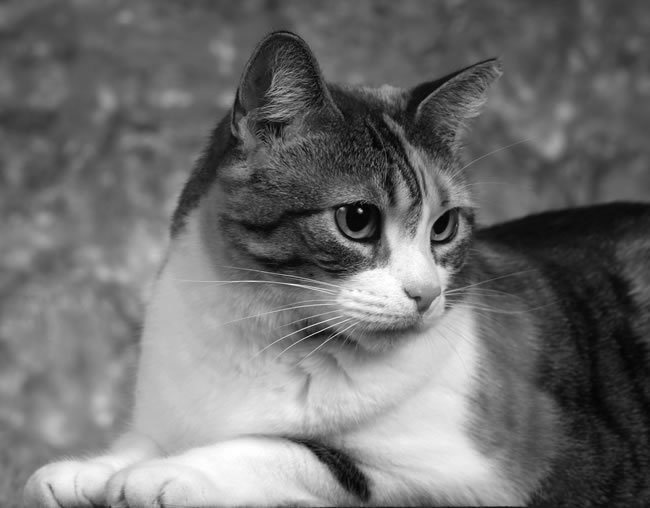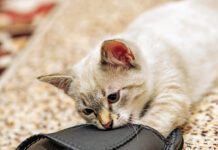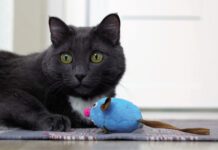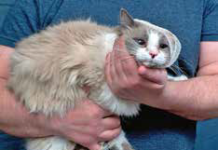
Q. I have a 13-year-old domestic shorthaired cat who has recently developed an annoying habit over the past six months. He has begun meowing incessantly to the extent that he is driving our family crazy. We cant tell if he is unhappy or sick, although he does not appear to be outwardly ill. This behavior keeps us up at night sometimes, and his daytime meowing has become hard to handle. Do you have any ideas about what may be going on?
A. I am sorry to hear about your kittys new penchant for vocalization, and I know that this can become a problem if it is excessive. The causes of this type of behavior vary from medical issues to behavioral problems, and determining exactly what the problem is can take some effort, but with diligent investigation a source can usually be identified.
Cats vocalize to communicate a variety of things, from territoriality to locating offspring, and their repertoire of vocalizations is impressive. Recent studies suggest (and many cat owners have figured out) that each sound has a general meaning, and interpreting what a cats vocalizations might be telling us can go a long way toward finding a solution to an excessively vocal kitty.
Hissing, for example, is usually an indication of aggression or fear, while purring is usually – but not always – a sign that a cat is content. It is also interesting that certain breeds like the Siamese are generally more vocal than others.
Excessive vocalization, and in particular a change in the vocalization habit, may be an indication of disease. Cats with hyperthyroidism may vocalize excessively, often in association with becoming generally hyperactive. Cats with various diseases of the central nervous system may become excessively vocal, as can cats with hearing problems.
Pain has also been implicated as a potential cause of excessive vocalization in cats. Consultation with your veterinarian is recommended to assure that disease and/or pain or discomfort is not the cause of your kittys newfound vocal propensity.
In some cases, cats may excessively vocalize for social or emotional reasons. Anxiety, conflict with other cats, other animals and/or people can make a cat vocalize more. Cats may meow to their owners to garner affection, or they may yowl or whine to express distress associated with separation from their owners and/or their feline (and sometimes canine!) friends.
Increased vocalization is also frequently observed in cats during mating behavior. This type of vocalization is (not surprisingly) more common in unneutered cats. Territoriality may also be more of an issue with intact cats, and cats often use vocal cues to express their dominion over a cherished space.
Recently, attention has been focused on cognitive dysfunction syndrome (CDS), a phenomenon that is believed to be similar to dementia in people. Cats with CDS often vocalize at unusual times of the day, such as in the middle of the night, and they may also stare off into space and/or act unusual in association with this behavior. Another form of dementia is seen in association with Feline Immunodeficiency Virus (FIV) infection. This phenomenon has received attention in the human medical field, as there are similarities between the dementia seen in cats infected by FIV and that seen in humans with advanced Human Immunodeficiency Virus (HIV) infection.
As you can see, the potential causes of your kittys behavior are numerous, and the best plan to begin finding the cause of his behavior is consultation with your cats veterinarian. He/she will be able to recommend appropriate tests to rule out medical causes of excessive vocalization, and if these are not fruitful, may be able to recommend ways of minimizing this behavior. Consultation with a veterinary behaviorist is often very helpful in addressing non-medical causes of excessive vocalization in cats.
I hope that this is helpful and that you can exercise patience with your baby while you work toward identifying the issue. Remember, cats who vocalize excessively are often trying to tell you something, and I think it is great that you are taking the first step toward figuring out just what that is with your kitty.
– Best regards, Elizabeth
Elizabeth is thankful for the assistance of Bruce G. Kornreich, DVM, Ph.D., ACVIM, Associate Director of the Cornell Feline Health Center, in providing the answer on this page.



